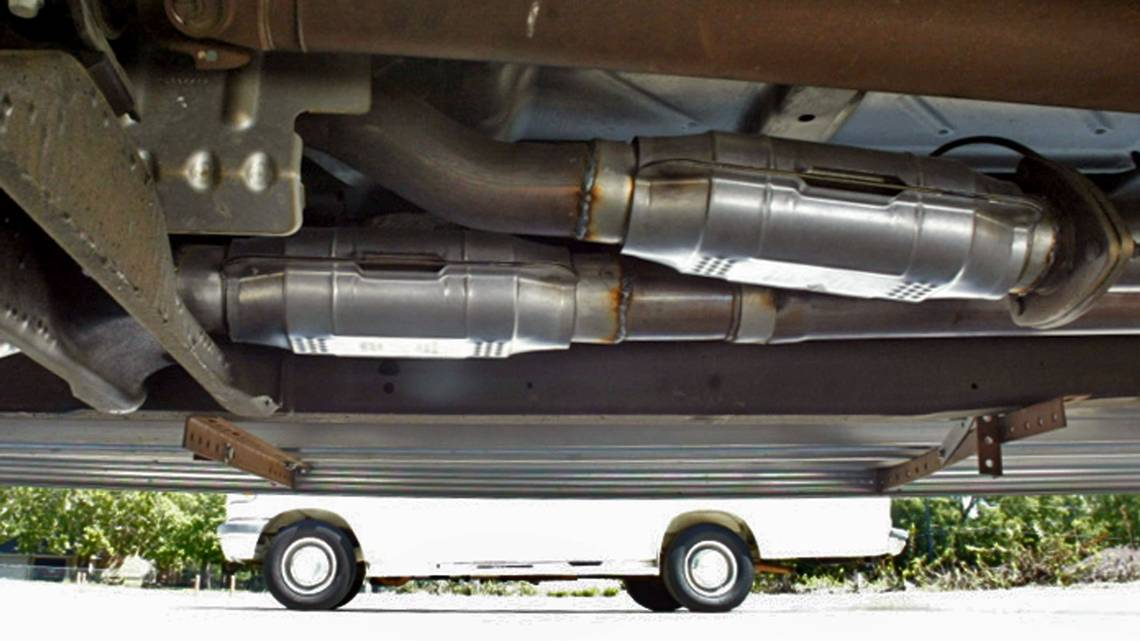
My customer Joe called the other day, and he wasn’t in a good mood. Nothing I did, but unfortunately he had become one of the latest victims in Los Angeles to have his catalytic converter ripped off.
“I can’t believe it, Jack. I got in my Prius this morning and turned it on. There was a weird sound like a motorcycle engine. I knew something was wrong because my car always purrs; it doesn’t roar. I got out to look around the car and noticed that the exhaust was gray and there was a huge gap in my exhaust pipe system. “That’s when I realized, someone took my #?$*& catalytic converter!”
I felt for Joe, but I wasn’t surprised. Between 2019 and 2020 the Los Angeles Sheriff’s Department reported 3,180 of these thefts, an increase of 164 percent in that one year.
Catalytic converters cut down the emissions of your automobile and are required for all automobiles in the state of California. If it’s missing it will delay the renewal of your vehicle’s registration.
Why Catalytic Converters are Prime for Stealing
Toyota Prius is one of several cars, including the Honda Jazz, Toyota Auris, and Lexus RX, that are more likely to have their catalytic converters stolen. Its value lies not in the converter, which aftermarket is worth a few hundred dollars, but the precious metals inside it: platinum, rhodium and palladium. The converters on the Jazz and Prius are also easier to access for thieves.
Platinum is selling for up to $1,200 per ounce on any given day. Rhodium has jumped around and is now about $25,000 per ounce, and palladium is selling for over $2,500 an ounce, so you can see the attraction. A new catalytic converter, depending on the car model and year, can cost about $2000 or more, plus labor.
Luckily for Joe, he has comprehensive coverage for his car and his insurance provider will pay for the replacement of the catalytic converter minus his deductible.
How Do You Know Your Catalytic Converter Has Been Stolen?
Like Joe, you hear a loud noise and see your exhaust emissions are gray, not white as they usually are. You may also notice that something is missing from your exhaust pipe. The catalytic converter looks like a bulge in the middle of exhaust piping. If it’s gone, you’ll see a big gap where the thieves sawed it off.
What Should You Do If Your Catalytic Converter Has Been Stolen?
If you notice any of the problems Joe experienced, here are some things we suggest:
- Report it to the police or sheriff’s department.
- Call your insurance provider to make sure you are covered and for how much.
- Tow the vehicle to AutoAid or drive it if it’s a short distance, but expect it
to be noisy as though you have no muffler.
If your converter was stolen or if it’s just not working well, stop into our shop and let us give your car a visual inspection before we do anything else. We’re here to serve your automobile needs.
To prevent the theft in the first place, or make it easier to catch the thieves and hopefully get your converter back:
- Etch your Vehicle Identification Number (VIN) on the surface of the converter so it has some type of identification. Converters don’t come with serial numbers.
- Buy a “cage clamp” device to make theft more difficult.
- Call AutoAid and let us check out your car and order your new converter. We are here to serve you.
AutoAid is a family-owned and operated automotive repair shop in the heart of the San Fernando Valley. The business services Domestic, Asian, and Japanese vehicles and has been voted a AAA Approved Auto Repair and Customer Service Award Winner for more than 30 years. See our customers reviews on Google, Yelp! and our website. Once on the website, you’ll also discover the additional services and special deals we offer, as well as the ability to make an appointment online. AutoAid can also be reached by phone 818-305-6632. Come join the AutoAid family.